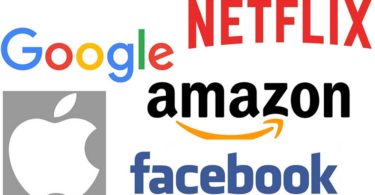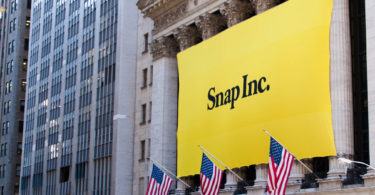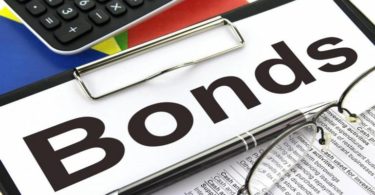The Oracle of Omaha tends to bet big on the companies he believes in.
Few, if any, investors have a larger following than Berkshire Hathaway (BRK.A 0.29%) (BRK.B 0.01%) CEO Warren Buffett. That's because the Oracle of Omaha, as he's now known, has vastly outperformed the benchmark S&P 500 since he became CEO in 1965. Through the end of 2021, Berkshire Hathaway's Class A shares (BRK.A) delivered an aggregate return that was 120 times greater than that of the S&P 500, including dividends paid, since Buffett took over.
With the exception of Berkshire Hathaway's annual shareholder meeting, the company's quarterly Form 13F filing is, arguably, the most anticipated event for shareholders and investing enthusiasts. A 13F allows investors to see exactly what Buffett and his investing team bought, sold, and held in the most recent quarter.

BERKSHIRE HATHAWAY CEO WARREN BUFFETT. IMAGE SOURCE: THE MOTLEY FOOL.
On Valentine's Day (Feb. 14), Berkshire Hathaway's 13F showed investors precisely which stocks the Oracle of Omaha “loves.” But despite holding stakes in 49 securities, Buffett and his team have highly concentrated the company's investment portfolio in just a few companies. A whopping 79% of Warren Buffett's $338 billion portfolio is invested in just six stocks.
1. Apple: 41.4% of invested assets
Although Buffett sent a subtle but terrifying signal to investors by being a net seller of equities during the fourth quarter, one stock Buffett continues to add to is tech stock Apple (AAPL -2.12%), which comprises close to $140 billion of Berkshire Hathaway's $338 billion investment portfolio.
Apple is viewed as a pillar investment for Berkshire because of its branding power, incredible cash flow, and considerable capital-return program.
Apple has an exceptionally loyal customer base, and is currently the leading provider of smartphones in the U.S. by a considerable amount. On top of attracting users with its physical products, CEO Tim Cook is overseeing a steady transformation of Apple to a services-oriented company. Even though Apple hasn't forgotten about the physical products that made it famous, evolving into a services-oriented company will improve long-term margins and minimize revenue fluctuations during physical product replacement cycles.
What's more, Apple has repurchased well over $550 billion worth of its common stock over the past decade, and it's parsing out one of the largest nominal-dollar dividends each year (almost $14.6 billion). Buffett loves publicly traded companies that reward their patient shareholders.
Editor's Note: Biden & Bill Gates Igniting $40 Trillion Heist?
Has President Biden's new executive order…
Alongside MIT, 77 global Governments, The Gates Foundation, UNICEF, and The Clinton Development Initiative…
Ignited a historic $40 trillion transfer of wealth from the middle class, to the rich?
Billionaire Stanley Druckenmiller says:
“This is the biggest redistribution of wealth from the middle class and the poor… to the rich, ever”
Newsweek says… “[This] Will Be The End of American Freedom.”
And HuffPost says… “[This] Is Making The Rich Richer and Leaving You Behind”
One of the nation's leading economists (Nomi Prins) has traveled to Delray Beach, Florida to uncover exactly what's happening and what this means for your money.
2. Bank of America: 10.8% of invested assets
If there's an industry the Oracle of Omaha loves to put Berkshire Hathaway's money to work in more than any others, it tends to be banking. At the moment, Bank of America (BAC -0.47%) is Buffett's undisputed favorite bank stock, as evidenced by the 10.8% weighting in Berkshire's investment portfolio.
The reason Buffett and his investing team favor bank stocks is because they're cyclical and can take advantage of a simple numbers game that favors long-term investors. You see, even though recessions are inevitable, they're usually short-lived. Comparatively, economic expansions can go on for years. This allows banks to grow their loans and deposits and generate higher income over time.
What makes Bank of America special is its interest rate sensitivity. With the Fed combating historically high inflation by raising interest rates, BofA is benefiting from higher interest rates on its outstanding variable-rate loans. The result was a $3.3 billion boost to net interest income during the fourth quarter from the prior-year period. Keep in mind, the nation's central bank isn't done with this rate-hiking cycle yet, either.
3. Chevron: 8.1% of invested assets
Over the past year, Buffett and his cohorts have become big fans of the energy sector. That's why you've seen energy stock Chevron (CVX -0.30%) grow into Berkshire Hathaway's third-largest position.
The logic behind having a $27 billion position in Chevron is that energy commodity prices will remain elevated for years to come. A lot of investors are focused on Russia's invasion of Ukraine and what that might do to Europe's energy supply needs. But the bigger concern is what three years of reduced capital investment tied to COVID-19 has done to the global energy supply chain. Although warmer weather has crushed the price of natural gas, supply constraints are buoying crude oil well above its average in recent years.
Chevron has also done an excellent job of strengthening its balance sheet and rewarding its shareholders. Last year, Chevron reduced its net debt from $25.7 billion to $5.4 billion. Further, the company increased its base annual payout for the 36th consecutive year in January 2023, and its board authorized a share buyback totaling as much as $75 billion.
4. American Express: 8% of invested assets
This year marks the 30th consecutive year credit-services provider American Express (AXP -0.98%) is a Berkshire Hathaway holding. The patience of Buffett and his investing lieutenants (Todd Combs and Ted Weschler) to allow this position to play out has resulted in an unrealized gain of approximately $25.5 billion, not counting dividends.
Similar to BofA, American Express benefits from extended periods of economic expansion. In addition to being a payment processor and collecting fees from merchants, AmEx is also a lender. During booms, it's able to generate interest income and annual fees from its cardholders, as well as enjoy the fruits as a payment processor from higher levels of consumer and enterprise spending.
Another reason for American Express' ongoing success is its ability to court high-net-worth individuals. People with higher incomes are less likely to alter their spending habits or fail to pay their bills when the inflation rate picks up or a modest recession takes place. This helps to partially insulate AmEx against economic downturns.
5. Coca-Cola: 7.1% of invested assets
The only stock Berkshire Hathaway has been continuously holding longer than AmEx is beverage giant Coca-Cola (KO -0.92%). The Oracle of Omaha has been a shareholder of Coca-Cola since 1988, and is currently benefiting from a dividend yield, relative to Berkshire's cost basis, of 56.7%. Coke's dividend alone is more than doubling Buffett's initial investment every two years.
What makes Coca-Cola's business tick is its geographic diversity and its top-notch branding/marketing. With regard to the former, the company has operations ongoing in every country worldwide, with the exception of North Korea, Cuba, and Russia — the latter due to its invasion of Ukraine. This geographic diversity allows Coca-Cola to rake in predictable operating cash flow in developed markets, while building on faster organic growth rates in emerging countries.
In terms of branding, Coca-Cola is, arguably, the best-known consumer goods brand on the planet. The company's marketing campaigns have for decades been incredibly successful connecting with consumers. Today, this involves using social media to reach younger consumers, while relying on its holiday connections with Santa Claus to engage a more mature global audience.
6. Kraft Heinz: 3.9% of invested assets
The sixth and final holding that concentrates a little over 79% of Berkshire Hathaway's invested assets into just a half-dozen stocks is packaged foods, snacks, and condiments company Kraft Heinz (KHC -0.34%).
Whereas most companies were, in some way or another, clobbered by the COVID-19 pandemic, Kraft Heinz was one of the few beneficiaries. Since people were stuck in their homes, Kraft Heinz's easy-to-prepare meals and snacks flew off grocery store shelves. It also doesn't hurt that the company owns more than a dozen well-known brands and can hike prices, as needed, to counter the effects of inflation.
But as I've previously argued, Kraft Heinz is one of Buffett's worst investments. Kraft Heinz took a goodwill write-down of more than $15 billion in February 2019, and is still lugging around a balance sheet heavy with long-term debt, goodwill, and intangible assets.
Additionally, signs of consumer strain and substitution bias are taking shape. During the fourth quarter, Kraft Heinz delivered 10.4% organic net sales growth, which was the result of a 15.2% increase in price. In other words, volume/mix declined by 4.8%. That's potentially worrisome for such a large holding in Berkshire's portfolio.
Should you invest $1,000 in Apple right now?
Before you consider Apple, you'll want to hear this…
Strong Buy: #1 Way to Profit From Oil in 2023
Do you own oil and gas stocks? Or are you thinking about buying some?
If so, you need to see this.
I just revealed my #1 way to profit from oil in 2023.
But it's NOT oil stocks, futures, or anything you've likely heard about.
Rather, it's an usual way to potentially bank huge monthly income from the oil and gas markets.
It's a secret so powerful that one man used it to turn a single $1,000 investment into a $100,000 income stream for over fifty years!
All the details are right here:










